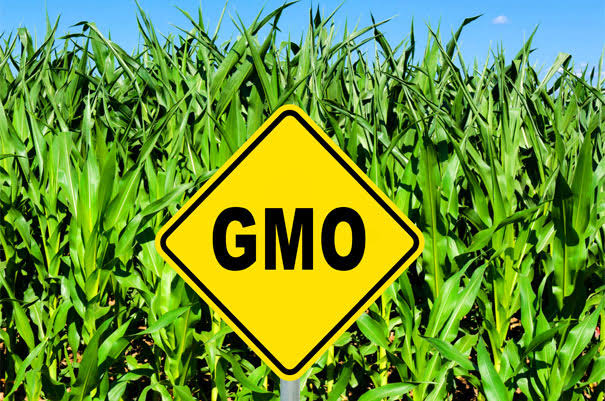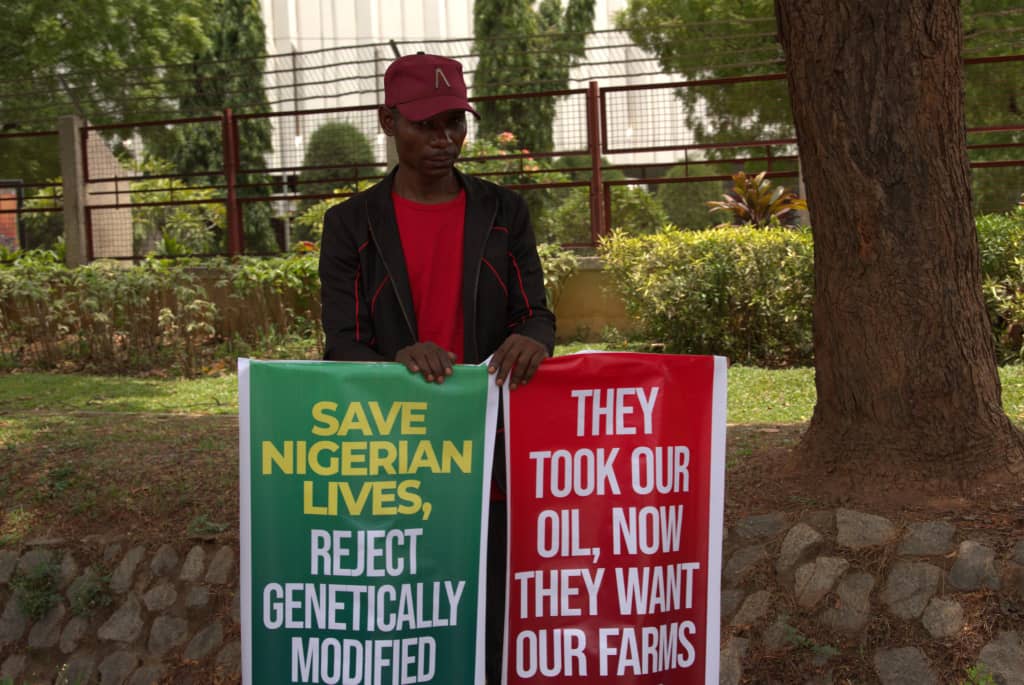President Bola Ahmed Tinubu recently approved the use of Genetically modified seeds (GMO) in the country to combat food shortage and increased food price. However, experts have argued that the country’s decision to adopt what other countries have found harmful and deficient is a wrong step.
The decision has also raised vital questions about the country’s development in science, technology, and agricultural policies. Tinubu’s support for GMO seeds marks a departure from traditional agricultural practices and has prompted a range of responses from stakeholders, including farmers, environmentalists, and policymakers. But what are these GMO seeds and why do they hold so much controversy?

GMO seeds are produced through genetic engineering techniques that alter the DNA of plants to achieve desired traits. Unlike traditional breeding methods that rely on natural variation and selection, genetic engineering allows for precise modifications, such as introducing new genes or altering existing ones. Genetically Modified (GMO) seeds are known to have revolutionised modern agriculture, playing a pivotal role in addressing global food security, improving crop resilience, and enhancing agricultural efficiency. Yet their adoption remains a topic of debate.
While experts have praised GMO seeds for its resistance to pests and diseases; improved tolerance to herbicides; enhanced nutritional value; and increased yield and quality of food products, the effects of GMO seeds are acclaimed to be the cause of many illnesses including cancer and Alzheimers.
Dr Agnes Asagbra, the DG/CEO of the National Biosafety Management Agency (NBMA) who spoke at a one-day consultative forum with importers and dealers of GMO seeds and grain in Lagos organised by the NBMA in collaboration with the Programme for Biosafety Systems (PBS), reaffirmed the agency’s commitment to ensuring that GMO innovations meet the highest safety standards and positively contribute to our environmental and economic landscapes.
She emphasises the agency’s role to facilitate progress while protecting citizens’ health and ecosystem integrity. According to her, the meeting’s purpose was to raise awareness among grain and seed importers, as well as those who use them in food and other processes.
“We have always recognised the value of safeguarding the health of our people, animals, plants, and the environment. We have been working with a variety of stakeholders, including the National Agency for Food and Drug Administration and Control (NAFDAC), the Nigerian Agricultural Service, and the Nigeria Customs Service, among others.
“We have also invited grain and seed importers to provide additional information and clarifications on everything they need to know, as well as to educate them and inform them that non-compliance will result in sanctions.”
Holding a similar view is Kabir Ibrahim, the National President of the All Farmers Association of Nigeria (AFAN) who stated in an interview that the issue of genetically modified crops has been ongoing for quite some time, and former President Goodluck Jonathan signed the NBMA Bill, which accelerated the production, distribution, and labelling of GM crops before presenting them for human consumption.
According to him, four TELA Maize variants, SAMMAZ 72T, SAMMAZ 73T, SAMMAZ 74 T, and SAMMAZ 75T, were introduced about two weeks ago, emphasising that GM crops are considered safe for human consumption once certified and approved by the NBMA, which has the authority to do so.
“We are pleased that President Tinubu has consistently implemented the State of Emergency to achieve food security in Nigeria.”
The benefit of GMO seeds through sustainability of the environment by reducing chemical inputs and enabling conservation tillage also encourages farming practices that are better for the environment, he explained.
According to Uche Nnaji, Nigeria’s Minister of Innovation, Science, and Technology, he said the crop’s commercial release was a significant step towards increasing agricultural productivity and ensuring the country’s food security. At a press conference in Abuja he highlighted the importance of strengthening Nigeria’s position in the global agricultural landscape and the benefits of the release were far-reaching, promising increased crop yields, greater resilience to pests and diseases, lower environmental impact, and improved nutrition content.

However, the stance of Nigerians concerning GMO seeds shows their non acceptance of the policy. @pshegs reacted on X that GMO should be banned immediately. He said “we must ban GMO Immediately in Nigeria if we are interested in protecting our food and national sovereignty from transnational vandals who use neo-colonialism to impoverish nations.
“GMO seeds are sterile. You cannot replant them. you will always have to buy seeds from the merchants. The day the Merchant says ‘No seed’ until you legalise LGBT nko?
“GMO farms cross pollinate and sterilise your natural farms, leading to the real famine we are running from. Transgenic and drought tolerant crops rely on chemicals that find their way into your diet and many cancer and tumour cases are connected to them.
“GMO farms will put our local farmers out of jobs. You can only practise mono cropping on large portions of land. Who can afford this? It is an act of terrorism to cultivate GMO in Russia. GMO is a bioweapon, Reject it!”
Also, @JA_strategist complained that “Organ damage is another concern that has been associated with the consumption of GMO foods. Some studies have suggested that GMO foods may have negative effects on organ function, particularly on the liver and kidneys.”
While experts have argued that GMOs do not hold the answer to food security, they hold the opinion that the government should address insecurity and farmer-herder clashes and ensure farmers can return to their farms. As the use of GMO portends short term benefits, the true solution to Nigeria’s food security is addressing poverty, inflation, insecurity, conflicts, and gender discrimination as the cost of GMO to ecological damage, biodiversity loss and health effects is immense.
Lovelyn Ejim, a farmer and Director of The Network of Women and Youth in Agriculture, urged other farmers to come together and reject the approval.
“It is critical that farmers speak with one voice. Allowing GMOs to dominate our food system is equivalent to returning to slavery. We should not allow the big guys to derail us with unfounded terms and unrealistic promises.”
It is expected that such a policy that affects most if not all will be rigorously studied and inputs from all stakeholders be considered. The disunity of voices relating to the adoption of GMO seeds shows otherwise as most see the adoption as risky, unhealthy and being puppeteered by the west. GMO seeds represent a powerful tool in modern agriculture, offering numerous benefits but also presenting challenges that need to be carefully managed. Is Nigeria technologically advanced enough to manage the adoption? In a country where millions are uneducated and insecurity pursues farmers from the farms, shouldn’t the focus be on creating a safe environment for farmers?

One thing this country seems to be good at is shying away from real solutions, adopting ones that will continue putting the country and its citizens in hardship and danger. I hope this piece reaches as many Nigerians as possible and hope the policymakers see sense and not sign it. As mentioned in the piece, if our farms will be secure and farmers supported we wouldn’t be in need of a health-threatening “food.” God bless Nigeria.